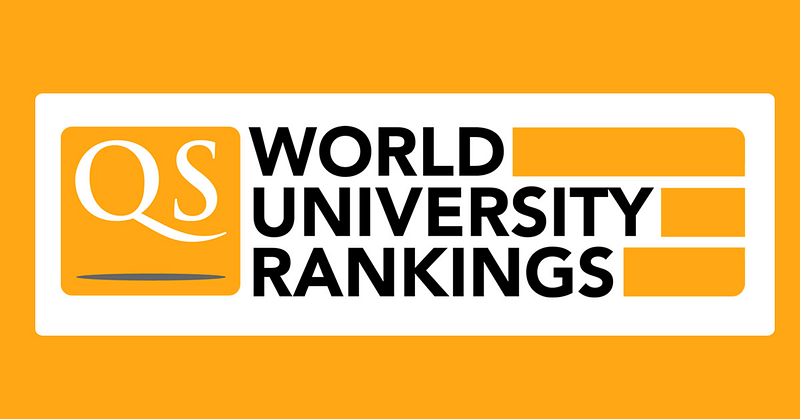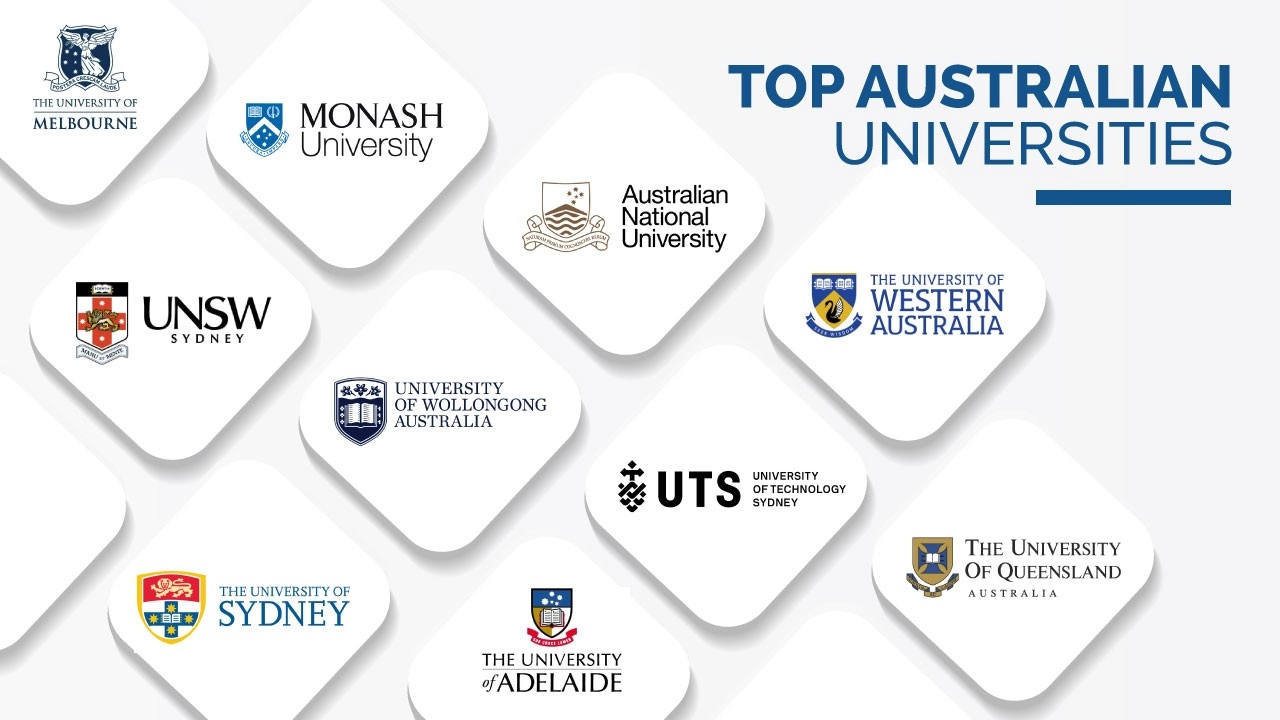
QS Ranking Universities in Australia
Universities in Australia- Choosing the right university is a crucial decision that can greatly impact your academic and professional journey. With numerous options available, it’s important to consider various factors in order to make an informed choice. One widely recognized ranking system that can aid in this decision-making process is the QS World Universities in Australia. In this comprehensive guide, we will explore the methodology employed by QS in their rankings and discuss the top five universities in Australia according to their QS ranking.Methodology of QS World University Rankings
The QS World Universities in Australia Rankings is a highly respected and comprehensive ranking system that assesses universities across multiple factors. These factors include academic reputation, employer reputation, faculty/student ratio, citations per faculty, international faculty ratio, and international student ratio. The rankings are based on a rigorous methodology that evaluates universities on a global scale, providing an insightful overview of their academic excellence and reputation.
Top 5 Universities in Australia
When it comes to studying in Australia, several universities consistently rank high in the QS World University Rankings. Let’s take a closer look at the top five universities in Australia according to the latest QS rankings:- The University of Melbourne: Topping the list as the best university in Australia, the Universities in Australia of Melbourne is renowned for its strong academic programs and research excellence. With a reputation for innovation and a diverse student community, it offers a wide range of undergraduate and postgraduate courses across various disciplines.
- The Australian National University (ANU): Located in the capital city of Canberra, ANU ranks second in Australia and excels in both research and teaching. It attracts students from around the world, offering a vibrant and intellectually stimulating environment for learning.
- The University of Sydney: As one of Australia’s oldest and most prestigious universities, the University of Sydney consistently maintains a strong international reputation. With a commitment to academic excellence, it offers a wide range of programs and attracts students from across the globe.
- The University of New South Wales (UNSW Sydney): Known for its strong focus on research-driven education, UNSW Sydney ranks among the top universities in Australia. Offering a broad range of disciplines, it fosters a culture of innovation and entrepreneurship.
- The University of Queensland (UQ): Situated in Brisbane, UQ is renowned for its world-class research and teaching. With a strong emphasis on practical learning and engagement with industry, it provides students with valuable opportunities for personal and professional development.
Factors to Consider when Choosing a University in Australia
When it comes to choosing the right university, the decision is not one to be taken lightly. While the QS rankings can provide valuable insights, there are additional factors that deserve careful consideration to ensure that you make the best choice for your future. Here are some key factors to keep in mind: Course Offerings– One of the most crucial factors to consider is whether the university offers the specific courses or academic programs you are interested in pursuing. Take the time to research the course catalog and curriculum to ensure that the university can cater to your academic interests and career goals. If you have a particular major or field of study in mind, check if the university has a strong reputation in that area. Location– The location of the university plays a significant role in your overall university experience. Consider whether you prefer an urban campus in the heart of a bustling city or a more tranquil setting in a smaller town. Take into account factors such as climate, proximity to home, and the availability of opportunities for part-time jobs or internships in the area. Campus Facilities- The facilities provided by the university can greatly impact your academic and personal life. Check if the university offers state-of-the-art libraries, research centers, laboratories, and sports facilities. Comfortable and modern student accommodation can also contribute to a positive university experience. Social and Cultural Environment- The social and cultural environment of the university can significantly influence your personal growth and overall satisfaction. Consider the campus culture, diversity of the student body, and the availability of clubs and organizations that align with your interests and values. A vibrant and inclusive campus can enrich your university life. Career Prospects- Research the career services and opportunities available to students at the university. Internship programs, industry partnerships, and a strong alumni network can pave the way for exciting career prospects after graduation. A university with robust connections to industries and employers can give you a competitive edge in the job market.
Financial Considerations- It’s essential to be mindful of the financial aspects of attending a university. Look into the tuition fees and any additional costs, such as accommodation and living expenses. Consider the availability of scholarships, grants, and financial aid programs that can ease the financial burden.
Campus Visits and Open Days- To get a true sense of the university’s atmosphere and culture, try to attend campus visits or open days. Interact with current students, professors, and staff to gain valuable insights into the university’s community and resources.
Student Support Services- Consider the availability of student support services, such as academic counseling, mental health resources, and career guidance. A university that prioritizes the well-being and success of its students can be instrumental in your academic journey.
Reputation and Accreditation- While QS rankings are helpful, it’s essential to research the university’s overall reputation and accreditation status. Look into factors such as faculty qualifications, research output, and the university’s standing in relevant academic communities.
Alumni Success Stories– Examine the success stories of the university’s alumni to gauge the institution’s impact on graduates’ careers. The achievements of former students can offer valuable insights into the university’s ability to nurture and prepare future professionals.
Study Abroad Opportunities- If you are interested in international experiences, check if the university offers study abroad programs. Studying abroad can broaden your horizons and provide unique academic and cultural experiences.
Extracurricular Activities- Consider the availability of extracurricular activities, clubs, and organizations on campus. Engaging in activities beyond academics can help you develop leadership skills, make friends, and enhance your overall university experience.
Support for Special Needs- If you have specific needs or disabilities, research the university’s support services for students with special requirements. A university that prioritizes inclusivity and accessibility can provide a nurturing environment for all students.
Research Opportunities- For students interested in research, inquire about the university’s research programs and opportunities for undergraduate involvement in research projects. Engaging in research can deepen your understanding of your field of study and enhance your academic profile.
Career Prospects- Research the career services and opportunities available to students at the university. Internship programs, industry partnerships, and a strong alumni network can pave the way for exciting career prospects after graduation. A university with robust connections to industries and employers can give you a competitive edge in the job market.
Financial Considerations- It’s essential to be mindful of the financial aspects of attending a university. Look into the tuition fees and any additional costs, such as accommodation and living expenses. Consider the availability of scholarships, grants, and financial aid programs that can ease the financial burden.
Campus Visits and Open Days- To get a true sense of the university’s atmosphere and culture, try to attend campus visits or open days. Interact with current students, professors, and staff to gain valuable insights into the university’s community and resources.
Student Support Services- Consider the availability of student support services, such as academic counseling, mental health resources, and career guidance. A university that prioritizes the well-being and success of its students can be instrumental in your academic journey.
Reputation and Accreditation- While QS rankings are helpful, it’s essential to research the university’s overall reputation and accreditation status. Look into factors such as faculty qualifications, research output, and the university’s standing in relevant academic communities.
Alumni Success Stories– Examine the success stories of the university’s alumni to gauge the institution’s impact on graduates’ careers. The achievements of former students can offer valuable insights into the university’s ability to nurture and prepare future professionals.
Study Abroad Opportunities- If you are interested in international experiences, check if the university offers study abroad programs. Studying abroad can broaden your horizons and provide unique academic and cultural experiences.
Extracurricular Activities- Consider the availability of extracurricular activities, clubs, and organizations on campus. Engaging in activities beyond academics can help you develop leadership skills, make friends, and enhance your overall university experience.
Support for Special Needs- If you have specific needs or disabilities, research the university’s support services for students with special requirements. A university that prioritizes inclusivity and accessibility can provide a nurturing environment for all students.
Research Opportunities- For students interested in research, inquire about the university’s research programs and opportunities for undergraduate involvement in research projects. Engaging in research can deepen your understanding of your field of study and enhance your academic profile.
 Gut Feeling- Ultimately, trust your instincts. Visiting the campuses, talking to current students and faculty, and imagining yourself as a part of the university community can help you make an informed decision. By carefully considering these factors alongside the QS rankings, you can make a well-rounded and informed decision about which university best aligns with your academic aspirations, personal values, and long-term goals.
Conclusion
Choosing the right Universities in Australia is a critical decision that can shape your future. The QS World Universities in Australia Rankings provides a comprehensive and reputable assessment of universities worldwide, including Australia. The top universities in Australia according to QS rankings include the University of Melbourne, ANU, the University of Sydney, UNSW Sydney, and UQ. However, it’s important to consider a range of factors when making your decision to ensure it aligns with your academic goals, personal preferences, and future aspirations. By conducting thorough research and considering all relevant factors, you can find the best university in Australia that meets your needs and sets you on the path to success.
For further assistance or queries students can contact us and avail of our wide range of services for students on destinations like study in USA, study in UK, study in Singapore, study in Switzerland, study in New Zealand and many other countries.
Q1: How are QS rankings determined?
A: QS rankings consider factors like academic reputation, research impact, and international diversity.
Q2: Can international students work while studying?
A: Many Australian universities allow part-time work for international students, aiding practical experience.
Q3: Are scholarships available for international students?
A: Yes, these universities offer scholarships for eligible international students.
Q4: What is the Group of Eight (Go8) coalition?
A: The Go8 represents leading research-intensive Australian universities known for excellence.
Q5: How do I apply for admission?
A: Check university websites for specific admission processes.
Gut Feeling- Ultimately, trust your instincts. Visiting the campuses, talking to current students and faculty, and imagining yourself as a part of the university community can help you make an informed decision. By carefully considering these factors alongside the QS rankings, you can make a well-rounded and informed decision about which university best aligns with your academic aspirations, personal values, and long-term goals.
Conclusion
Choosing the right Universities in Australia is a critical decision that can shape your future. The QS World Universities in Australia Rankings provides a comprehensive and reputable assessment of universities worldwide, including Australia. The top universities in Australia according to QS rankings include the University of Melbourne, ANU, the University of Sydney, UNSW Sydney, and UQ. However, it’s important to consider a range of factors when making your decision to ensure it aligns with your academic goals, personal preferences, and future aspirations. By conducting thorough research and considering all relevant factors, you can find the best university in Australia that meets your needs and sets you on the path to success.
For further assistance or queries students can contact us and avail of our wide range of services for students on destinations like study in USA, study in UK, study in Singapore, study in Switzerland, study in New Zealand and many other countries.
Q1: How are QS rankings determined?
A: QS rankings consider factors like academic reputation, research impact, and international diversity.
Q2: Can international students work while studying?
A: Many Australian universities allow part-time work for international students, aiding practical experience.
Q3: Are scholarships available for international students?
A: Yes, these universities offer scholarships for eligible international students.
Q4: What is the Group of Eight (Go8) coalition?
A: The Go8 represents leading research-intensive Australian universities known for excellence.
Q5: How do I apply for admission?
A: Check university websites for specific admission processes.


